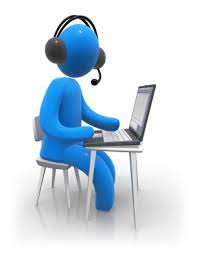
by Doreen Harper | May 1, 2015 | Entrepreneurs, Speakers
Have you ever wondered why so many business owners and entrepreneurs moonlight as speakers for teleseminars and webinars? That is because they know that both of these methods can be harnessed to their advantage. If you have never considered using teleseminars and webinars before, here are 6 reasons that just might have you asking yourself why? While these aren’t the only reasons they certainly top the list.
Introduce your business or brand
One of the most beneficial benefit of either producing or speaking at teleseminars and webinars is that they can be leveraged to introduce an unknown company or brand. Quite often, business owners who are new to the industry will find it difficult to build interest in their business simply because they don’t have history or sufficient background.
Teleseminars and webinars benefit a business by allowing the owner to represent the business and give it a face. This helps nail the fact that the business is a real entity. Additionally, lectures through phone and the Web also help a business build its brand.
Become a recognized authority
Another common business benefit of teleseminars and webinars is that they can be used to build your reputation. This is especially important if you’re still trying to break into a particular industry and have to create enough buzz for yourself.
If you are able to produce a successful teleseminar or webinar, you will be able to build a following among your target market. This will help you create a pipeline of prospective clients. Remember, depending on who you talk to it can take 7 to 13 touches to close a sale. Why not have your teleseminars and webinars be a few of those touches?
 Promote products
Promote products
Teleseminars and webinars are not only a means unto themselves – they are also a very useful tool to promote a product. This is why you’ll find that speakers at teleseminars and webinars have books, e-books, audio, videos and other products that they market to their audience via their lectures.
Generally, a speaker will discuss a topic with their audience and then refer to a product that can be used as a reference, guide or some sort of instructional material. Much of the content found in those products cannot be accessed during the teleseminar or webinar so the audience is motivated to purchase.
Increase sales
These days, more traditional means of promoting and selling products very often do not suffice. This is especially true since many consumers prefer to browse and shop online.
With a well-crafted and delivered teleseminar or webinar, it’s quite easy to drum up sales for a product. Many experienced teleseminar and webinar speakers swear by these methods, even reporting sales of their products in the thousands of dollars.
Communicate with customers on a more personal level
Another great business benefit of teleseminars and webinars is that they allow business owners to keep in touch with their customers. Businesses can harness the technology used for both methods to personalize their services.
Whether a teleseminar or webinar is given for free or as paid lectures, they are always very effective as a means to interact with a business’ audience or market on a more personal level.
Cost effective
One of the main concerns of many businesses is expense. To build a brand, promote a product or launch a marketing campaign, a business owner simply has to spend and that cost can potentially run you into the thousands of dollars just to reach your prospect customers. Using either a teleseminar or a webinar, your business can benefit by taking advantage of the low cost associated with producing a lecture through phone or the Internet. Now imagine connecting with thousands of potential customers without leaving your desk!
Teleseminars and webinars are highly cost effective and easy to produce. But the most important factor is they work! That alone should be music to any business owner’s ears.






by Doreen Harper | Mar 17, 2015 | Speakers
 As a professional speaker there are several marketing items you need in your portfolio in order to market yourself effectively. These tools, if properly done, will ensure you obtain more and higher paying speaking engagements. Unfortunately, a surprising number of speakers fail to achieve their desired income because they fail to create a portfolio to properly market their skills and talents. It is time to reach the income you’ve heard and dreamed about by creating a phenomenal portfolio TODAY!
As a professional speaker there are several marketing items you need in your portfolio in order to market yourself effectively. These tools, if properly done, will ensure you obtain more and higher paying speaking engagements. Unfortunately, a surprising number of speakers fail to achieve their desired income because they fail to create a portfolio to properly market their skills and talents. It is time to reach the income you’ve heard and dreamed about by creating a phenomenal portfolio TODAY!
Speaker bureaus and meeting planners expect to see certain pieces of information in order to ascertain whether you are the professional speaker they are looking for. These pieces of information include a one sheet highlighting the material you’ll be presenting, a speaker biography, testimonials and/or reviews, a list of the services you provide including educational materials and fee schedule, a sample client list, a demo video and a business card with contact information. It is also a great idea to include a letter on personalized letterhead stating your interest in the event and why you feel they should choose you.
- One sheet – include a general outline of the presentation you’ll be making. Your material should relate to the theme of the convention or seminar being hosted.
- Speaker biography (bio) – highlight certifications and qualifications in your 2 -3 paragraph narrative. Each paragraph should be about 2-3 sentences long and should give bureaus and planners an idea of who you are and what you’re about. This bio may also be used as part of the advertisement of the speaking engagement and may be shortened to a short paragraph. You should also send a professional picture of yourself.
- Testimonials and/or Reviews – This information helps to build your credibility as a speaker because it tells what others are saying about you. In order to build this area effectively, you should also consider requesting feedback after each speaking engagement whether they are free or for a fee.
- List of services and products – This section of information includes a price list of books, CD’s or videos that you produce related to your speaking topic. This section can also include other types of speaking engagements that you do along with the respective prices that you will charge.
- List of the clients you’ve worked for – you can combine this with your testimonial and review sections however, keep in mind that not everyone will respond to your request for feedback. Either you didn’t ask for a review or they didn’t take the time to fill out your review sheet. You can still keep a running list of the people who have used your services.
- Demo video – This should be on the subject you are being asked to speak on. It gives your prospective planners an idea of what they will be getting should they choose to hire you. This should also be professionally done.
- Contact information – include information on the various ways that speaker bureaus and meeting planners can get in touch with you should they decide to hire you.
A successful marketing strategy which includes your portfolio ensures that you are on the path to becoming a successful professional speaker. It also presents you as a professional and an established leader in your field. Now that you know the tools you need, are you ready to create your portfolio so you can start marketing yourself today?






by Doreen Harper | Mar 14, 2015 | Marketing
There are three reasons why you should publish an eZine.
- An eZine builds a targeted market audience for your product or service.
- An eZine allows you to share resources
- An eZine showcases you as an expert.
Before I explain why you should publish an eZine, let me answer the question what is an “eZine?”
Semantically “eZine” is a mash up of the words “electronic” and “magazine.” Today the term is so widely used it is synonymous with newsletter that is delivered electronically.
Now let’s answer the question why should I publish an eZine?
 Target audience – Publishing an eZine allows you to build a target audience. Place an email sign up option on your website. Periodically send out an invitation to sign up for your eZine through your online social networks. By doing this people who are specifically interested in your product or service are giving you permission to send them information.
Target audience – Publishing an eZine allows you to build a target audience. Place an email sign up option on your website. Periodically send out an invitation to sign up for your eZine through your online social networks. By doing this people who are specifically interested in your product or service are giving you permission to send them information.- Resource – Publishing an eZine allows you to be the resource for your target audience. It is an opportunity for you to share reviews of products, recommend products and introduce your readers to useful information they may not have known about. Your target audience will begin to rely on you.
- Expert – By being a resource to your target audience you will be an expert in their eyes. You are demonstrating your knowledge. They will begin to see you as their “go-to-person” when they need your product or service.
Why should you publish an eZine? In the marketing industry it is said that consumers will purchase from sources they “know, like and trust.” If someone signs up for your eZine, they like your product or service. When you share resources with your target audience you are letting them get to know you. When your target audience relies on you as an expert, they trust you.”






by Doreen Harper | Feb 23, 2015 | Marketing
Everyone is trying to jump on the band wagon of Video Marketing. Each thinking wouldn’t it be great if their company became the next sensation. Or, the one topic everyone couldn’t stop talking about around the water cooler. It actually could happen if the marketing strategy and the message is right.
 Video has begun to change the world in countless different ways, and web video has only made the revolution stronger. Sites like YouTube, Vimeo and Metacafe can transform an individual, or a company, from an unknown entity to the next sensation in the world. The power of viral video is well known, and many marketing professionals are busy trying to help their companies become the next big star. The trouble with most strategies that are being used by most of the marketing professionals is that they are missing the bigger picture. Your videos do not need to become the newest overnight sensation in order to reap the important benefits they provide.
Video has begun to change the world in countless different ways, and web video has only made the revolution stronger. Sites like YouTube, Vimeo and Metacafe can transform an individual, or a company, from an unknown entity to the next sensation in the world. The power of viral video is well known, and many marketing professionals are busy trying to help their companies become the next big star. The trouble with most strategies that are being used by most of the marketing professionals is that they are missing the bigger picture. Your videos do not need to become the newest overnight sensation in order to reap the important benefits they provide.
Video Lets Your Voice be Heard
Words on a page are a dime a dozen, but video speaks volumes. We have all heard that a picture is worth a thousand words €“ the good news is that a video can be worth far more. With a well made video you can take the time to tell your potential customers your story and have them share your vision.
Videos Can Provide Long Lasting Results
A 30 second spot on television or radio is gone in a flash, but web videos can be kept virtually forever. Whether it is next week, next month, next year or years down the road your company’s voice will still be out there.
Videos Show Your Company in a Positive Light
Consumers want to build a relationship with the companies they buy from, and companies like Apple have made a fortune trading on their corporate culture as well as their products. Web videos are a great way to introduce your potential customers to your own corporate culture.
Video Provides an Important New Outlet for Your Marketing Talents
Marketing is as much an art as it is a science, and it is important to show off your artistry in a number of different ways. Modern technology provides companies with a myriad of ways to get the word out, from articles in trade journals and webinars at trade shows to blogs and articles on the internet. Web video provides another powerful outlet for company marketing.
Producing Quality Video is Not as Challenging as You Might Think
These days chances are good your five year old niece has a cell phone with a video camera and chances are also good that she knows how to use it. If a five year old has the talent and know how to create a video so do you. Many people are intimidated by video production jargon, but in the end if you have a camera and something compelling to say viewers will take notice.
Web video can provide many great benefits for your company, even if the videos you produce do not become the next internet sensation. Being the must see clip on one of the many video hosting sites would certainly be a bonus, but you do not have to go viral to go big.






 Promote products
Promote products



